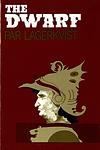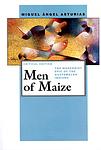The Greatest Swedish, Guatemalan "Allegorical" Books of All Time
Click to learn how this list is calculated.
This list represents a comprehensive and trusted collection of the greatest books. Developed through a specialized algorithm, it brings together 305 'best of' book lists to form a definitive guide to the world's most acclaimed books. For those interested in how these books are chosen, additional details can be found on the rankings page.
Genres
Allegorical books are a genre of literature that use symbolic characters, events, and settings to convey a deeper meaning or message. These stories often have a moral or philosophical lesson that is meant to be interpreted by the reader. Allegories can be found in many different types of literature, including novels, short stories, and poetry. They are a powerful tool for exploring complex ideas and emotions, and can be used to comment on social, political, or religious issues. Overall, allegorical books are a thought-provoking and engaging genre that challenges readers to think critically and reflect on the world around them.
Countries
Date Range
Reading Statistics
Click the button below to see how many of these books you've read!
Download
If you're interested in downloading this list as a CSV file for use in a spreadsheet application, you can easily do so by clicking the button below. Please note that to ensure a manageable file size and faster download, the CSV will include details for only the first 500 books.
Download-
1. The Dwarf by Par Lagerkvist
"The Dwarf" is a dark, philosophical novel set in the Italian Renaissance, narrated by a malevolent court dwarf who serves a prince. The dwarf is a symbol for the darker side of humanity, embodying all the malice, deceit, and manipulation that one can possess. His actions and viewpoint provide a cynical commentary on human nature and the moral complexities of power, war, and love. The novel explores themes of good and evil, faith and doubt, and the destructive side of human nature.
The 1022nd Greatest Book of All Time -
2. The President by Miguel Angel Asturias
The novel in question is a gripping political drama set in an unnamed Latin American country, where a ruthless dictator wields absolute power. The narrative delves into the dark and corrupt world of political machinations following the assassination of a colonel, which triggers a series of events that expose the brutal and oppressive regime. Through the eyes of various characters, including the paranoid president, the falsely accused, and the oppressed citizens, the story explores themes of power, fear, and injustice, painting a vivid picture of a society under the thumb of a tyrannical leader. The book is a powerful critique of dictatorship and a poignant exploration of the human cost of absolute power.
The 1892nd Greatest Book of All Time -
3. To Damascus by August Strindberg
"To Damascus" is a semi-autobiographical play that follows the spiritual journey of the protagonist, known as the Stranger, who embarks on a quest for meaning and redemption. Struggling with guilt, doubt, and a sense of existential despair, he encounters various symbolic characters, including the Confessor and the Lady, who represent different aspects of his psyche and philosophical challenges. The play delves into themes of faith, suffering, and the search for truth, as the Stranger's pilgrimage reflects the author's own introspective exploration of personal crisis and spiritual awakening. Set against the backdrop of turn-of-the-century Europe, the work is a complex blend of psychological drama and religious allegory, illustrating the profound inner conflicts and transformative experiences of its central figure.
The 7168th Greatest Book of All Time -
4. Men Of Maize by Miguel Angel Asturias
The book is a magical realist novel that delves into the lives, traditions, and struggles of the indigenous people of Guatemala, intertwining their personal stories with the mythic and spiritual beliefs rooted in their connection to the land, particularly the cultivation of maize. The narrative, rich in symbolism and poetic language, explores the impact of modernization and exploitation on rural communities, critiquing the forces of colonialism and capitalism that disrupt the harmony between humans and nature. Through a series of interconnected tales, the novel paints a vivid portrait of a culture in transition, grappling with the loss of its identity and the fight to preserve its heritage.
The 7168th Greatest Book of All Time
Reading Statistics
Click the button below to see how many of these books you've read!
Download
If you're interested in downloading this list as a CSV file for use in a spreadsheet application, you can easily do so by clicking the button below. Please note that to ensure a manageable file size and faster download, the CSV will include details for only the first 500 books.
Download


